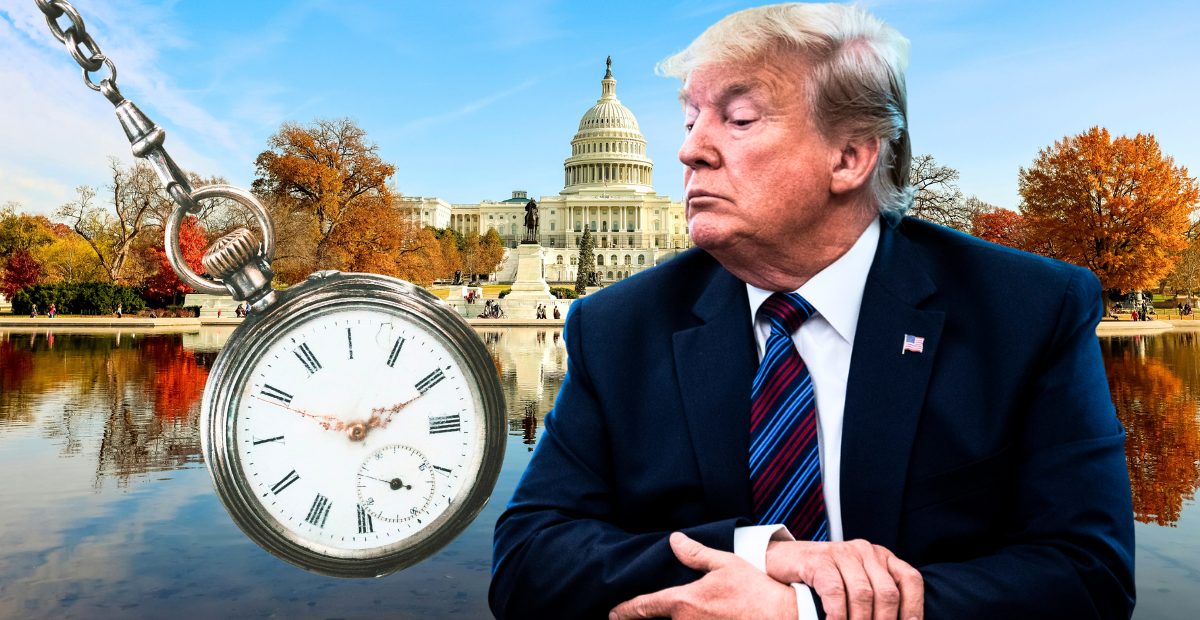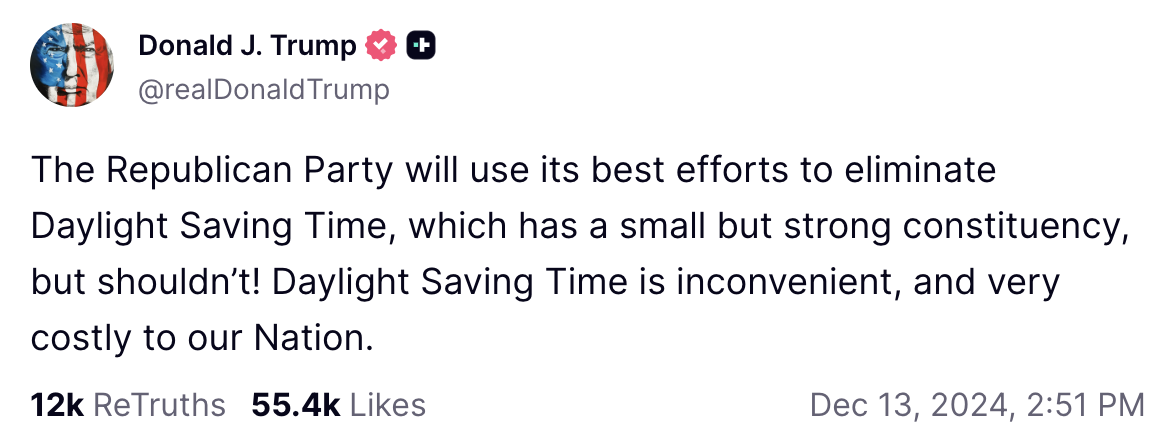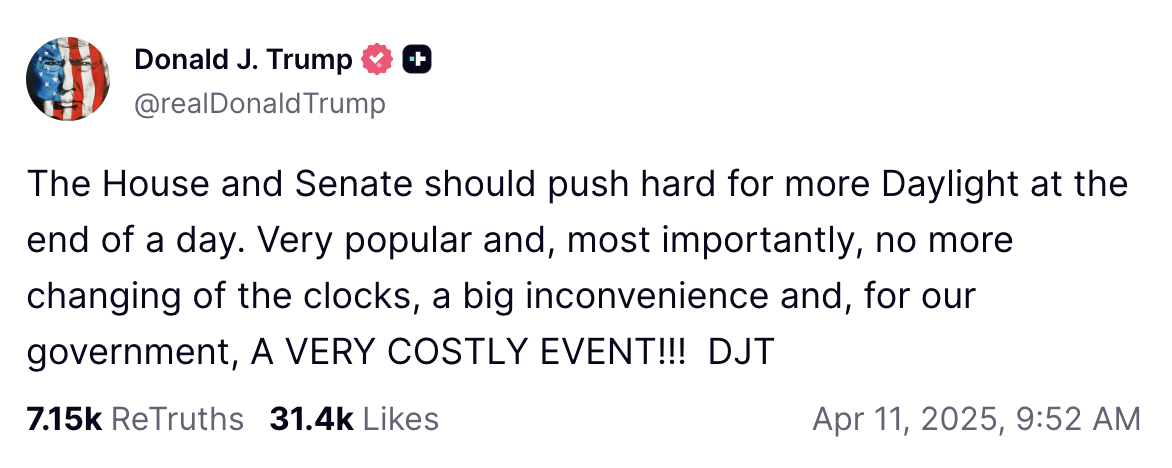Could This Be Our Last Time “Falling Back” For Daylight Savings Time?
on Oct 23, 2025

President Donald Trump Has Expressed His Hope To End The Time Change Practice
In less than two weeks, at 2 a.m. on Sunday, November 2, many clocks will automatically “fall back” one hour to Standard Time, or 1 a.m.
The rest of the clocks in our lives will need to be reset manually, but everyone will have hopefully received the initial benefits of an extra hour of sleep.
However, for many years now, there has been a push by some legislators to end the practice of changing the time to capitalize on daylight.
This move is something President Donald Trump has even expressed support for on a few occasions… but also in a few different ways.
For now, standard time will go from November 2 until time springs forward for Daylight Savings Time on March 8.
Trump’s Stance On Daylight Savings Time
If Standard Time were to be made the norm, there would be more morning light. Conversely, if Daylight Savings Time was preserved and extended year-round, there would be more light in the afternoon.
During Trump’s first presidential term, Trump put his support behind making Daylight Savings Time permanent, writing on X, then Twitter:
Making Daylight Saving Time permanent is O.K. with me!
— Donald J. Trump (@realDonaldTrump) March 11, 2019
As president-elect in December of 2024, Trump posted a somewhat controversial statement on Truth Social… controversial, as he seemed to be backing a permanent Standard Time.
“The Republican Party will use its best efforts to eliminate Daylight Saving Time, which has a small but strong constituency, but shouldn’t!” wrote Trump.
See his full post from December 13, 2024, here:

In March, Trump addressed the issue from the Oval Office while taking questions from the press. There, he said it “should be the easiest issue of all,” but admitted it was a “50/50 issue.”
Watch Trump speak on the time change in March, here:
Then, in April, Trump made his stance more clear, writing on Truth Social:

RELATED: U.S. Government Remains In Shutdown
How The Time Change Could Become A Thing Of The Past
Standard Time and Daylight Savings Time was enacted by Congress in 1918 in the Standard Time Act.
This act also formally instituted the time zones of the continental United States.
As such, an act of Congress would be needed to do away with Standard Time.
Prior to Trump’s second term, there was a bipartisan push for more sunshine in the afternoon.
Dubbed the Sunshine Protection Act, this piece of legislation was led by then Sen. Marco Rubio, R-FL, with many supporters from sides of the aisle signing on as sponsors.
The bill seeks to make Daylight Savings Time the rule of the land.
Among those sponsors is Sen. Ed Markey, D-MA, who said of the Act in 2024:
“This head-spinning ritual of falling back and springing forward has gone on long enough. It isn’t just a nuisance — changing our clocks also has a very real impact on our economy, our health, and our happiness. More sun means more fun, so let’s pass the Sunshine Protection Act, which would make for brighter days year-round.”
Rubio was also quoted, saying, “It’s time to lock the clock and stop enduring the ridiculous and antiquated practice of switching our clocks back and forth.”
He added, “Let’s finally pass my Sunshine Protection Act and end the need to ‘fall back’ and ‘spring forward’ for good.”
The Sunshine Protection Act passed the Senate unanimously by a voice vote in 2022, but was denied by the House of Representatives.
In early 2025, the Sunshine Protection Act was again brought forth, but this time by Sen. Rick Scott, R-FL, as Rubio is now Secretary of State.
There are some states with legislators who have expressed concern about a permanent Daylight Savings Time meaning darker days overall, such as in Indiana.
The Nixon Administration’s Implementation Of A Permanent Daylight Savings Time
Briefly, from January 6, 1974, to October 27, 1974, a Congressionally-approved trial period of a permanent Daylight Savings Time was enacted. This was signed into law by President Richard Nixon in December of 1973.
The Emergency Daylight Saving Time Energy Conservation Act of 1973 was short-lived.
While the push for the permanent Daylight Savings Time was made amid an energy shortage, the enacted policy quickly lost public support and interest.
As morning commute fatalities increased in Northern states which experienced darker mornings due to the change, the Watergate Scandal threw additional bad publicity on the endeavor.
Nixon announced his resignation from office as the 37th president on August 8, 1974, and his successor, President Gerald Ford, did away with the permanent Daylight Savings Time ahead of schedule by several months in October.
The trial run of a permanent Daylight Savings Time was supposed to go through the end of February 1975.











